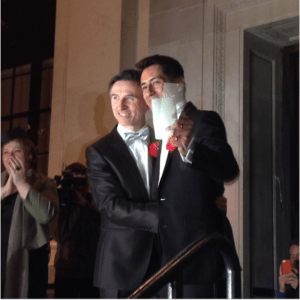There are many reasons why Labour’s leader, Sir Keir Starmer, can expect to move into 10 Downing Street.
After 14 years in power, Tories are blamed for the country’s persistent economic crisis, the damaging results of Brexit, mismanaged migration issues and a poor record on public services, including the NHS, trains and water companies.
The Labour Party is more likely to be voted in since the British public thinks they have better policies than Conservatives in terms of the NHS and reducing the cost of living, by a 23 and 11 points difference, respectively. As well as that, they also lead in managing the economy by six points.
Democracy will run its course, but as Harbingers’ Magazine launch its first-ever Pride Month, it is worth remembering that it was a Conservative government led by David Cameron which introduced marriage equality in England and Wales in 2013 (Scotland followed in 2014 and Northern Ireland in 2020).
It is not surprising that teenagers in today’s Britain take this for granted – in March 2014, when the first gay couples took their historic vows, I was seven years old, so I grew up witnessing a reality where gay marriage was a regular occurrence.
What is most important, however, is that the current election campaign proves that over the last decade, marriage equality has become such a strong part of Britain that no one dares to challenge it – according to a 2023 YouGov poll, 78% of Britons support same-sex marriage, and almost half of the respondents know someone in such a union.
This is a striking change compared to the election campaign of 2010, when only Lib Dems unequivocally supported marriage equality. Labour’s then prime minister Gordon Brown argued in Pink News that his government did not introduce marriage equality because the issue is “intimately bound up with questions of religious freedom”. Today, no mainstream politician would say anything like that.




